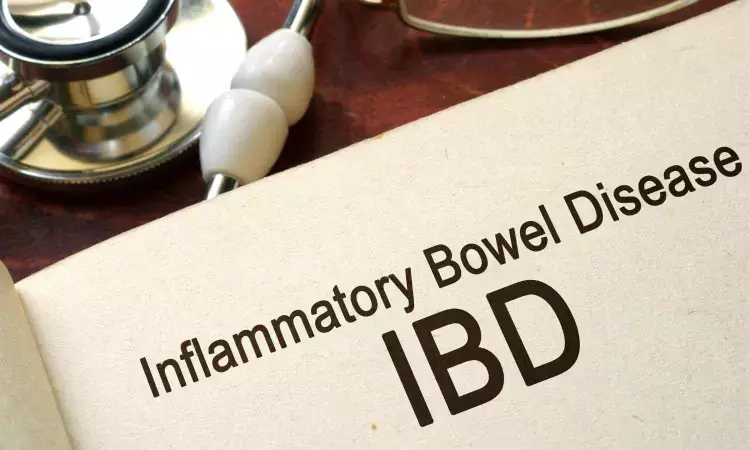- Home
- Medical news & Guidelines
- Anesthesiology
- Cardiology and CTVS
- Critical Care
- Dentistry
- Dermatology
- Diabetes and Endocrinology
- ENT
- Gastroenterology
- Medicine
- Nephrology
- Neurology
- Obstretics-Gynaecology
- Oncology
- Ophthalmology
- Orthopaedics
- Pediatrics-Neonatology
- Psychiatry
- Pulmonology
- Radiology
- Surgery
- Urology
- Laboratory Medicine
- Diet
- Nursing
- Paramedical
- Physiotherapy
- Health news
- Fact Check
- Bone Health Fact Check
- Brain Health Fact Check
- Cancer Related Fact Check
- Child Care Fact Check
- Dental and oral health fact check
- Diabetes and metabolic health fact check
- Diet and Nutrition Fact Check
- Eye and ENT Care Fact Check
- Fitness fact check
- Gut health fact check
- Heart health fact check
- Kidney health fact check
- Medical education fact check
- Men's health fact check
- Respiratory fact check
- Skin and hair care fact check
- Vaccine and Immunization fact check
- Women's health fact check
- AYUSH
- State News
- Andaman and Nicobar Islands
- Andhra Pradesh
- Arunachal Pradesh
- Assam
- Bihar
- Chandigarh
- Chattisgarh
- Dadra and Nagar Haveli
- Daman and Diu
- Delhi
- Goa
- Gujarat
- Haryana
- Himachal Pradesh
- Jammu & Kashmir
- Jharkhand
- Karnataka
- Kerala
- Ladakh
- Lakshadweep
- Madhya Pradesh
- Maharashtra
- Manipur
- Meghalaya
- Mizoram
- Nagaland
- Odisha
- Puducherry
- Punjab
- Rajasthan
- Sikkim
- Tamil Nadu
- Telangana
- Tripura
- Uttar Pradesh
- Uttrakhand
- West Bengal
- Medical Education
- Industry
Increased risk of venous thromboembolism observed in children with IBD: Study

A new study published in the journal of Inflammatory Bowel Disorder showed that children with inflammatory bowel disease (IBD) are more likely to get venous thromboembolism (VTE) when compared to children without IBD. Venous thromboembolism is more common in patients with inflammatory bowel disease. Adult studies have demonstrated that IBD is a risk factor for VTE on its own, increasing the risk by up to 15 times during an exacerbation and by three times overall.
It has been demonstrated that hospital stays carry a significant risk of VTE. Guidelines advise that hospitalized adult patients with IBD get thromboprophylaxis because to the substantial morbidity and mortality associated with VTE. With an estimated frequency of 0.09% to 1.9%, pediatric patients with IBD are likewise at higher risk for VTE, despite its lower prevalence in children. Children with inflammatory bowel illness have a higher risk of venous thromboembolism, according to recent research. However, there are few cases and inconsistent risk estimates. In order to give national estimates of the risk of VTE in children with IBD, Philip Harvey and his team carried out this study.
Between 2001 and 2019, individuals diagnosed with either VTE or IBD before turning 18 were identified using hospital episode statistics. The risks of acquiring VTE in the general population and IBD populations were computed, and populations and subgroups are detailed.
Children with VTE who had been diagnosed with IBD or during the last 6 months, as well as those without IBD, were the subjects of the study. Children with IBD had an absolute risk of 9.42 per 10,000 patient-years, while children without IBD had an absolute risk of 0.18. The largest absolute risk period for VTE was six months before and one year after an IBD diagnosis.
Younger patient groups had the highest relative risk of VTE among children with IBD compared to the ones without. The risk was 96.5 for the ones aged 0 to 8 and 153.1 for those aged 9 to 11 vs 14.3 for those aged 15 to 17. When compared to 4.2% in children, cerebral venous sinus thrombosis accounted for 17.6% of pediatric VTE occurrences in IBD patients without IBD. Overall, based on the findings of this study, children with IBD had a higher chance of getting a VTE, with the risk being highest around the time of diagnosis.
Source:
Harvey, P. R., McNulty, D., Coupland, B., Kemos, P., Croft, N. M., & Trudgill, N. J. (2024). The Risk of Venous Thromboembolism in Children With Inflammatory Bowel Disease. In Inflammatory Bowel Diseases. Oxford University Press (OUP). https://doi.org/10.1093/ibd/izae249
Neuroscience Masters graduate
Jacinthlyn Sylvia, a Neuroscience Master's graduate from Chennai has worked extensively in deciphering the neurobiology of cognition and motor control in aging. She also has spread-out exposure to Neurosurgery from her Bachelor’s. She is currently involved in active Neuro-Oncology research. She is an upcoming neuroscientist with a fiery passion for writing. Her news cover at Medical Dialogues feature recent discoveries and updates from the healthcare and biomedical research fields. She can be reached at editorial@medicaldialogues.in
Dr Kamal Kant Kohli-MBBS, DTCD- a chest specialist with more than 30 years of practice and a flair for writing clinical articles, Dr Kamal Kant Kohli joined Medical Dialogues as a Chief Editor of Medical News. Besides writing articles, as an editor, he proofreads and verifies all the medical content published on Medical Dialogues including those coming from journals, studies,medical conferences,guidelines etc. Email: drkohli@medicaldialogues.in. Contact no. 011-43720751


